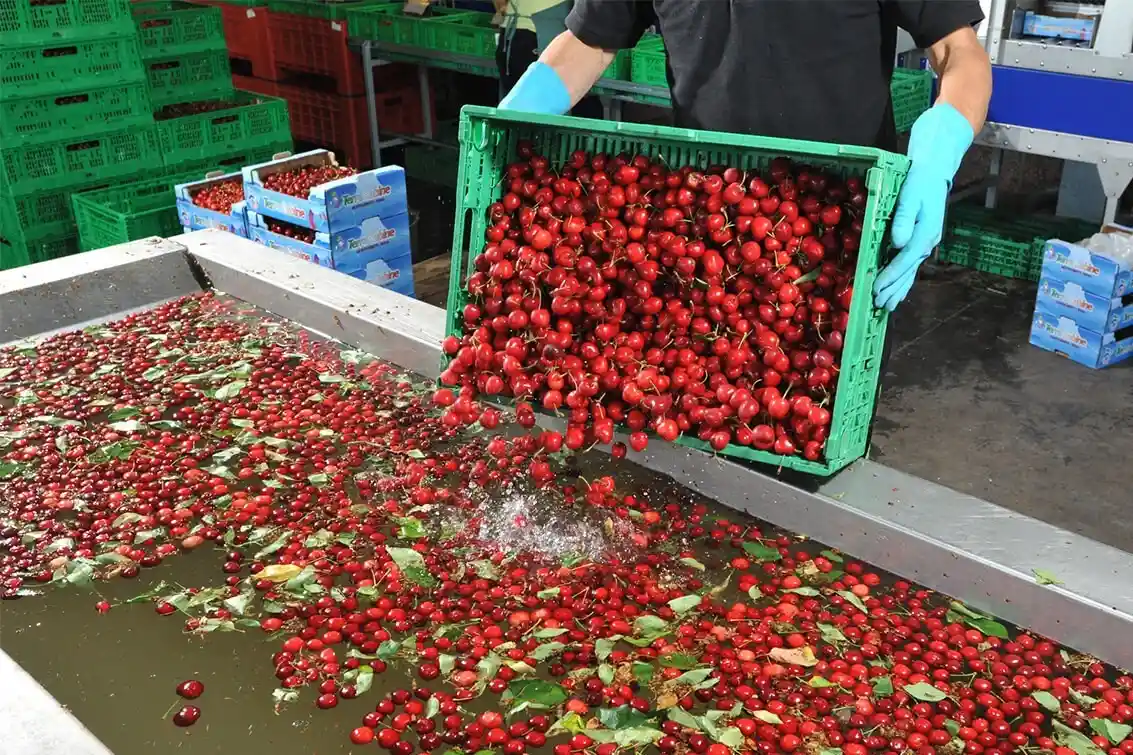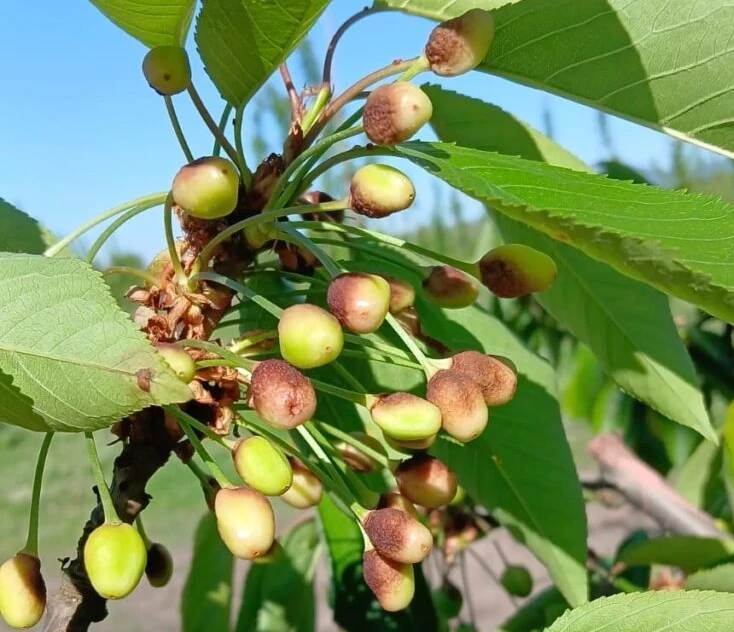During 2024, Río Negro consolidated the growth of cherry production, with 450 hectares dedicated to cultivation and a 20% increase in new plantations. A historic milestone was reached with the first shipments to Chile, while Latin American and Southeast Asian countries emerge as key destinations.
Cherry production in Río Negro is enhanced by the incorporation of early varieties that optimize resource use in the Middle Valley, allowing for an earlier harvest and greater competitiveness in international markets.
These advances are the result of a joint effort between the public and private sectors, with the Government of Río Negro, through the Ministry of Economic Development and Productivity, playing a key role in the promotion and financial support for producers.
In this context, Governor Alberto Weretilneck emphasized the importance of market diversification. “We are working hard to promote innovation and position our cherries in international destinations that value the quality of our product,” he said.
Since 2019, strategic assistance programs have been implemented, such as the Regional Assistance Program (PAR), which provides financing for the purchase of agricultural production factors and protection technologies like anti-hail nets, essential for mitigating the impact of late frosts.
Investments in irrigation infrastructure have also been a key pillar, with tariff subsidies offered by the Federal Investment Council (CFI) and Banco Patagonia to small and medium-sized producers.
In this regard, emphasizing investment, the Minister of Economic Development and Productivity, Carlos Banacloy, stated that “the fruit industry of Río Negro, with the cherry as its main protagonist, is preparing to continue growing in the coming years, driven by Governor Weretilneck's policy, which asks us to work on technological innovation, market diversification, and supporting the commitment to sustainability.”
More Quantity, Better Quality
Cherry production has grown not only in terms of volume but has also reached new quality standards. In this sense, the biological control of pests, using natural predators, is another commitment that ensures a clean and sustainable product, meeting the highest sanitary standards for international markets. In 2024, the province maintained its sanitary status in key markets such as Brazil, where for the third consecutive year, no phytosanitary issues were reported.
“We had a harvest of excellent quality with a volume 20% higher than last year, which makes Río Negro a record in its history of cherry harvests. The reasons for the quality are generally natural. There was extreme quality, with very good sizes, cherries with very good color, and as an added value, this includes the incorporation of early genetics, which has brought forward the harvest time,” said Facundo Fernandez, Secretary of Fruit Production of Río Negro.
The first shipments of cherries from Río Negro to Chile were made in October. This has strengthened its presence in markets such as Peru, Colombia, and Panama, which are positioned as key destinations for 2025. Southeast Asia is also under development, with markets such as India, Vietnam, and Thailand, where fruit consumption continues to grow.
Furthermore, Río Negro will assume coordination of the Mercosur Commission and International Negotiations of the Federal Council for Foreign Affairs and International Trade, which will further strengthen its position in strategic markets.
Source: Agrovalle
Images: SL Fruit Service
Cherry Times - All rights reserved










